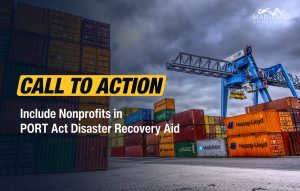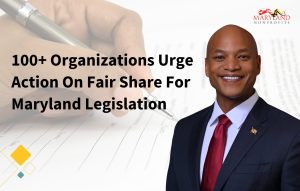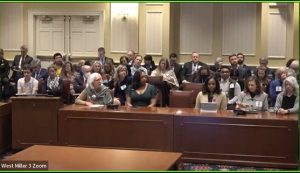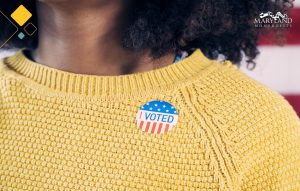Conner Wolfe
Maryland Nonprofits’ take on the new Federal Grantmaking Guidance
The new guidance, while an improvement, continues to systemically disadvantage historically marginalized communities and the nonprofits that serve them.
Immediate Call: Include Nonprofits in PORT Act Disaster Recovery Aid
We urge legislative leaders and the Moore Administration to acknowledge the vital role of nonprofits and provide the necessary financial assistance to ensure they can continue their crucial work.
100+ Organizations Urge Action on Fair Share for Maryland Legislation
The collective emphasizes the critical need for legislative action to support the act as part of a long-term solution to the state's financial crisis.
Key Bridge Collapse Impact: Request for Collaboration and Resources
Our goal is to compile these resources into a centralized, easily accessible format that will be shared broadly within our network and with the public.
Our hearts ache for those impacted by the Key Bridge collapse
Dear Friends, As I write this message, emergency workers have entered the recovery phase in the search for the missing construction workers from the catastrophic Key Bridge collapse. Thinking of the six people who are presumed lost is heartbreaking and a reminder of...
A Letter to Maryland Governor Wes Moore on the Fair Share Maryland Plan
Dear Governor Moore, RE: FY 2025 Budget and the Fair Share for Maryland Act (SB388 / HB1007) On behalf of Maryland Nonprofits, representing the over 40,000 nonprofit organizations across our state and our 1,800 members, I extend my sincere gratitude for the important...
The Testimonies of the Fair Share Maryland Hearing
Read what nonprofit advocates and legislators had to say in favor of the Fair Share Maryland Plan.
Is every single thing in your organization held together by duct tape?
If you are like me, you probably have resolutions and goals for 2024. One of my resolutions is to intentionally take the time to fix bothersome things rather than just being annoyed by them over and over again. You probably also have items on your list that need...
Member Spotlight: St Francis Neighborhood Center
Torbin Green, the Executive Director of SFNC has continued the advocacy and improvement of the Reservoir Hill & Penn North communities by successfully creating opportunities for the youth in 21217, hosting senior socials, and hosting ESL classes and wrap-around...
Empower Your Community: Unleashing the Power of Nonprofits in Voter Engagement for 2024
In a time where civic participation is crucial, nonprofit organizations play a pivotal role in fostering voter engagement and ensuring all voices are heard. Nonprofit VOTE is the leading provider of nonpartisan resources to help nonprofits integrate voter engagement...










